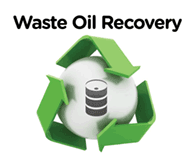Working at the borders to get Plant Material out of and into New Zealand –
PMAC & GERMAC
These two acronyms [PMAC & GERMAC] are unfamiliar to most growers; however these two related bodies smooth the path for both NZ plant exports to other countries and imports of germplasm into NZ. Germplasm being cuttings, seeds and tissue culture of new plants and varieties developed overseas and so important for keeping NZ horticulture up to date and competitive with international competition.
So when you next package your plants for export and fill out the required documentation or consider upgrading your varieties or maybe sowing new brighter and better plant types, give a thought to PMAC & GERMAC.
The NZ Flower Growers Association supports both of these bodies and as that support in the 2014/15 period represented around 28% of the association’s subscription income for 2014/15, it is time we had a closer look at what they are and what they do.
The ‘Plant Market Access Council (Inc)’
-
Their purpose – “Increase economic returns to NZ through sustainable and profitable market access for plant products”.
-
Their mission – “A partnership between industry, MPI [Ministry for Primary Industries] and MFAT [Ministry for Foreign Affairs & Trade] that provides strategic leadership to drive market access and increase industry profits”.
It is a fact that things do not just happen; markets do not just open themselves, or even be closed within a matter of hours when something goes wrong. It is a tough world and level playing fields do not really exist. If you want to export in this world you need someone on your side all the time and that is PMAC, MPI and MFAT.
PMAC was created because exporters had to start paying for government services. This was introduced by the Lange government in 1984 to help tem balance the books . MAF [as it was then] began collecting money from exporters for providing phytosanitary certificates. The money was then to be spent on their behalf. As a monopoly supplier MAF was required to consult with industry in a formal way as to how that money should be spent.
This arose from a jargon of the time. “User pays – User says”.
(Today the a similar principle is being applied to Government Industry Agreements [GIA’s] on how to deal with Biosecurity incursions into NZ. But in this case a sector can buy influence by being involved)
Initially consultative forums and committees were used but many issues needed clarifying and better, clearer, fairer systems developed.
The result was PMAC now considered to set a benchmark for successful consultative committees.
PMAC now has an independent chairman in Russ Ballard a former MAF director general; an executive officer – Helen Gear who comes from a varied horticultural background, running her own plant nursery to contracting her services to various government departments; and Andy Warren Managing Director of ‘Bloomz NZ’ who represents the flower industry at the meetings.
Some of PMAC’s Successes –
-
The electronic certification system
-
The development of a transparent market access prioritisation processes.
-
Input into our trading countries access proposals.
-
Improved information sharing about market access issues, producing faster and better resolutions.
PMAC Current Issues –
-
Developing and negotiating protocols for trade continuation in the event of a future fruitfly incursion.
-
Review of plant exporter’s phytosanitary certification system to ensure clarity, alignment and efficiency.
-
Streamlining of PMAC partners joint activities.
GERMAC the other side of the coin
Again, the composition is a good range of industry representatives, along with various MPI managers and advisors. [NZ Flower Growers Association being represented by Andy Warren] There is also a representative from the EPA [Environmental Protection Agency].
For NZ to be able to compete with its plant products against the rest of the world there needs to be a constant inflow of new plant material. To achieve this we need to have operational IHS’s [Import Health Standards] and imports need to be achievable and affordable.
Unfortunately due to a lack of resources and prioritisation, it seems that the MPI group providing IHS’s for importers of plant germplasm are no longer able to meet demands for their services and waiting periods for import certification have become impossibly long. Members of the GERMAC board have taken the issue to senior MPI management – Martyn Dunne and Scott Gallacher.
The GERMAC board has also identified the barriers to easy importation of plant germplasm and the changes needed, some of which are as follows:-
-
Raise the profile within MPI of the importance of germplasm imports.
-
Too often urgent issues take precedence over IHS’s for germplasm imports; ensure some staff are dedicated to updating IHS’s.
-
At present some staff from this unit are required to deal with PSA court case.
-
The ‘Post Entry Quarantine’ [PEQ] facility PHEL House near the Auckland airport is overloaded and moves have been suggested and made to make better use of the space, and reduce time in PEQ, raising the output. It seems that PHEL house is the preferred quarantine facility for most importers as others are more expensive and distant from the airport.
-
Remove out of date IHS’s; update the testing manuals.
-
Improve communications, consider whether low risk pathways such as tissue culture could be prioritised and streamlined
-
Look at new technologies for reducing the period plants are in high level quarantine. E.g. could molecular testing replace woody indexing?
-
There was involvement with the cost recovery review and the possibility of more staff. However a further complication is the lack of people with the appropriate skill level.
As can be seen the role of GERMAC is critical in improving the importation of new germplasm which is needed by all growers to ensure they remain up to date and producing varieties that are wanted by the market whether it be local or international.
Further correspondence on this article should be directed to Chris at [email protected]



 Classifieds
Classifieds



